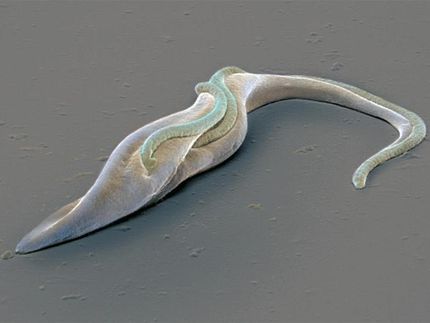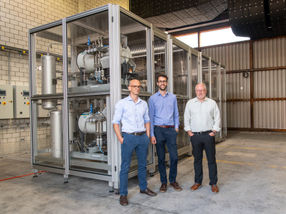Tailoring of pharmaceuticals against asthma
Researchers at Karolinska Institutet in Sweden have managed to elucidate the crystal structure of a human membrane protein TC4 synthase which has a major influence on the development of asthma. LTC4 synthase is extremely difficult to analyze, and previously only low resolution information has been available on two membrane protein structures from human. The scientists now believe that their work will enable the development of new and better therapeutics against inflammations in the pulmonary tract.
Asthma attacks are caused by an acute inflammatory reaction in the airways, a reaction that is largely due to actions of LTC4 synthase. For this reason asthma medicines often aim at blocking the downstream effects of LTC4 synthase. However, there is a need for new pharmaceutical alternatives, since not all patients respond to the existing medicines.
Scientists at the Department of Medical Biochemistry and Biophysics have now, with the help of the two EU networks EICOSANOX and E-Mep, elucidated the three dimensional structure of the LTC4 synthase at 2.0 Å resolution. It is clear from the structure that the protein has three identical subunits, each of them consisting of four spiral structures that span the nuclear membrane. Also the exact position and characteristics of the active sites, where activating or blocking molecules can bind, have been identified. With this knowledge it is now possible to tailor new molecules that can block the LTC4 synthase.
The new results are also very important as they can lead the way for the development of new and more effective therapeutics against other diseases. Some 40 % of the proteins of interest for pharmaceutical developments are membrane proteins. Until now detailed structural information on these proteins has been absent, and therefore it has been difficult to fully understand their function. The present study is likely to lead the way for the determination of structures of other human membrane proteins. The elucidation of more membrane protein structures will help us understand fundamental processes that take place in the cell membranes.
Most read news
Organizations
Other news from the department science

Get the life science industry in your inbox
By submitting this form you agree that LUMITOS AG will send you the newsletter(s) selected above by email. Your data will not be passed on to third parties. Your data will be stored and processed in accordance with our data protection regulations. LUMITOS may contact you by email for the purpose of advertising or market and opinion surveys. You can revoke your consent at any time without giving reasons to LUMITOS AG, Ernst-Augustin-Str. 2, 12489 Berlin, Germany or by e-mail at revoke@lumitos.com with effect for the future. In addition, each email contains a link to unsubscribe from the corresponding newsletter.























































